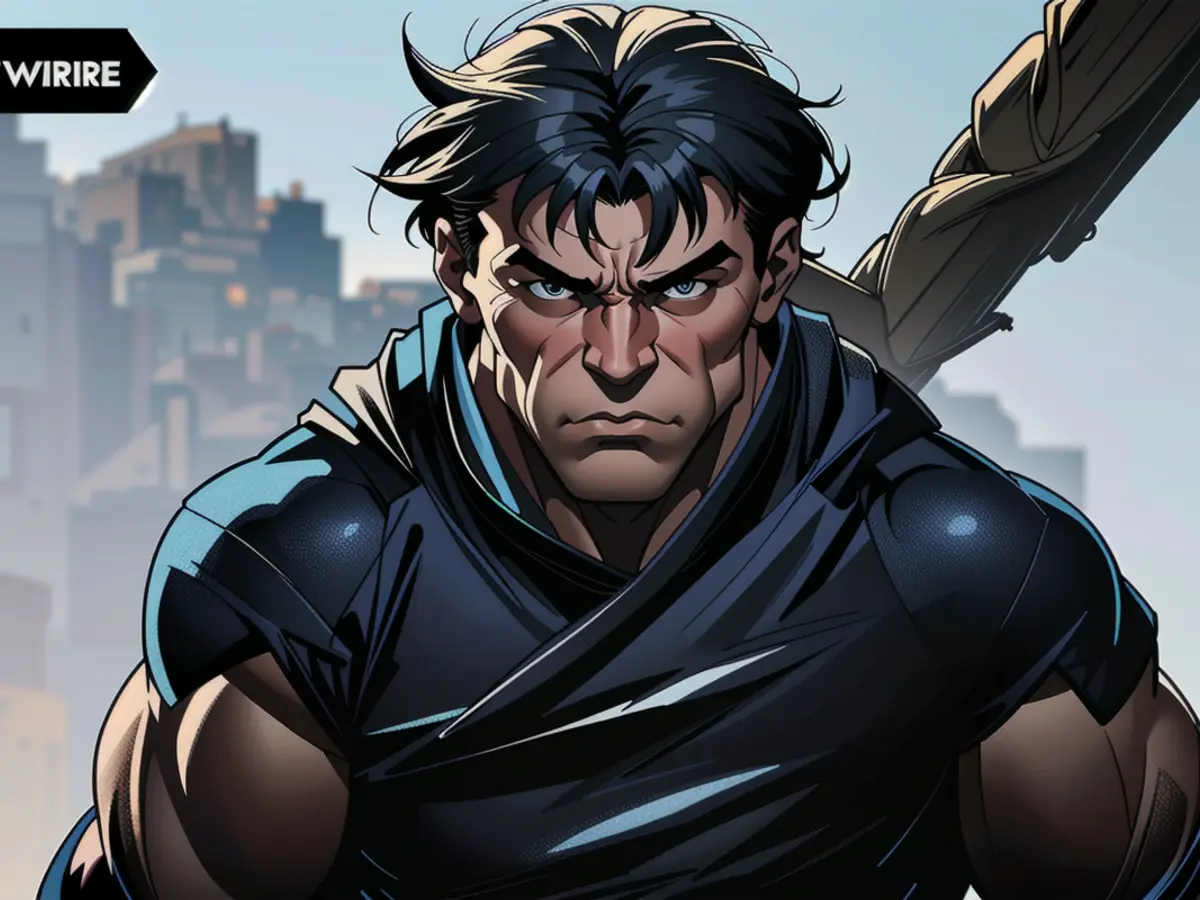Continuing Saga of Planet of the Apes Offers Challenging, Rewarding Viewing Experience
Blowin' Up Planet Apocalypse: A Final Farewell to Caesar
The heart-wrenching saga of Caesar and his band of intelligent primates comes to a gritty, emotional finale in War for the Planet of the Apes (2017). Mere weeks before the release of the latest installment, Kingdom of the Planet of the Apes (2024), we'll take a look back at the gripping conclusion to this engrossing trilogy.
Amidst a scorched post-apocalyptic landscape, humans and apes are locked in a relentless struggle for survival. The toll exacted by this ongoing conflict leaves both sides severely weakened, with neither showing any signs of letting up.
After a devastating battle that leaves over 60 of his kin dead, Caesar (Andy Serkis) makes a desperate attempt at peace. He spares the lives of several embattled human soldiers on the condition they deliver a message to their commanding officer – the Colonel (Woody Harrelson) – stating that Caesar no longer wishes to fight. However, the Colonel has other plans, launching a full assault that claims the lives of Caesar's wife and eldest son.
Fuelled by vengeance, Caesar sets out to find the Colonel and bring an end to the war, accompanied by loyal allies Rocket and Maurice (Terry Notary and Karin Konoval, respectively). Along the way, they stumble upon a mysterious mute child the group takes in and names Nova (Amiah Miller), as well as an eccentric lone ape known as Bad Ape (Steve Zahn). This wandering Simian reveals a shocking truth: other apes around the world have also developed intelligence.
Caesar is eventually captured by the Colonel's vast army and learns that his entire tribe has suffered the same fate. The ensuing film shifts focus to Caesar's attempt to escape rather than waging war. Along the way, pivotal details emerge: the Simian Flu that wiped out humanity has evolved, causing the infected to regress; the Colonel is a power-hungry outlaw among the remnants of humanity who uses the captive apes to build fortifications; and Nova is mute due to the effects of the disease.
Harrelson delivers an unforgettable, Brando-esque performance as the Colonel, who understands the inevitable downfall of humanity. He's the only character who views the apes as the rightful rulers of the planet, a troubling yet intriguing foreshadowing of a bleak Planet of the Apes future.
Caesar, portrayed beautifully by Serkis, is not without his demons. Haunted by the ghost of his deceased friend Koba, Caesar grapples with his regrets and anger as he seeks to protect and save his people, particularly his youngest remaining son, Cornelius.
The expected epic battle is subverted by Mother Nature herself – an avalanche that abruptly ends the conflict. This serves to remind the audience that no matter the cause, fight, or belief, everything can be swept away in an instant.
In the end, the apes' new home is revealed, a verdant haven where they can rebuild their world. Caesar succumbs to his injuries, content in knowing he has given his people a second chance.
Though this film may not meet expectations of a war-centric title, it offers insight into the inevitable forces shaping the planet. In War for the Planet of the Apes, the apes win, but at great cost, ensuring their survival in a chaotic world.
Though Dawn of the Planet of the Apes was lauded as the best of the franchise, Rise of the Planet of the Apes lays the groundwork, with War for the Planet of the Apes holding a strong third place. Kingdom of the Planet of the Apes hits theaters soon, promising more action, drama, and intellect among our ape brethren.
For more io9 updates, delve into the latest on Marvel, Star Wars, Star Trek, the DC Universe, and the future of Doctor Who.
- In the upcoming movie, Kingdom of the Planet of the Apes (2024), we'll look back at the heartbreaking events of the conclusion of the trilogy, including the 2017 film, War for the Planet of the Apes.
- The technology in the Planet of the Apes trilogy, namely the Simian Flu that bestowed intelligence upon apes, has set a fascinating precedent for future storytelling in movies.
- The films in the Planet of the Apes trilogy, including Rise (2011), Dawn (2014), and War (2017), vividly portray a future where apes and humans are at war, a setting that draws audiences in with its gripping conflict.
- A surprising revelation in War for the Planet of the Apes is that other apes around the world have also developed intelligence, a technological advancement that promises to play a significant role in the future of this simian society worldwide.








